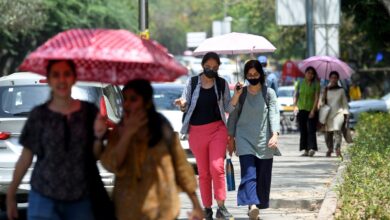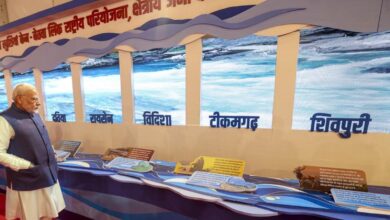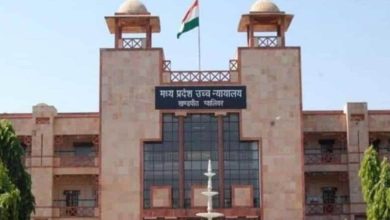Bhopal gas tragedy: SC seeks Centre’s stand on further compensation for victims | Latest News India

The Supreme Court on Tuesday asked the central government to take a categorical stand on whether it wants to pursue the case against American company Union Carbide for additional compensation for the victims of the 1984 Bhopal gas tragedy. A constitution bench, headed justice Sanjay Kishan Kaul, noted that the Centre wanted some time to make up its mind on the curative petition that it filed in 2010 for seeking compensation over and above the $470 million already paid Union Carbide, which is now a wholly owned subsidiary of The Dow Chemical Company. Through the curative plea in 2010, the government sought a reconsideration of the May 1989 judgment and a 1991 order of the Supreme Court, arguing that the 1989 settlement was grossly inadequate. It sought additional funds of over ₹7,400 crore from the chemical company, which was held accountable for the loss of more than 5,000 lives on the night intervening night of December 2-3, 1984 when the highly dangerous and toxic gas, Methyl Isocynate (MIC), escaped from company’s plant in Bhopal. Appearing before the bench on behalf of the Union government on Tuesday, solicitor general Tushar Mehta submitted that the matter has come up for hearing suddenly and that he would need some time to take instructions from the government about the prospect of arguing the petition. At this point, advocate Karuna Nundy mentioned her intervention application on behalf of a few victims of the disaster, seeking an audience in the matter. Senior advocate Sanjay Parikh also appeared for an organization representing the interests of victims . Their request was opposed senior advocate Sidharth Luthra, who was representing the chemical company, arguing the maintainability is doubtful. The bench, on its part, observed that affording an audience to anybody seeking to intervene would arise only after the Centre makes it stand clear on arguing the curative petition or withdrawing it. “Please, remember. It’s a curative petition. It is not going to be a re-hearing…The government will have to take a stand whether they are going to press the curative petition or not. You may not be able to a hearing if the government is not going to press its curative,” the bench, which also included justices Sanjiv Khanna, AS Oka, Vikram Nath and JK Maheshwari, said. It further remarked that any judicial system must also provide for certainty. “There may not be an ideal solution for everything. There must also be a finality…Unless the Union takes a stand, the question of hearing anyone else doesn’t arise at all,” it added. Parikh, at this juncture, submitted that the number of victims, including those seriously ailing and deceased, has increased manifold with the passage of time. To this, the bench responded: “These are accidental issues and are indeed unfortunate incidents. But can there be a perpetual continuity on compensation or that some finality will have to be reached in matters of compensation?” The bench then proceeded to defer the hearing to October 11, granting time to the Centre to revert with its response on pressing the curative petition. Responding to the court proceedings, Rashida Bee, President of the Bhopal Gas Peedit Mahila Stationery Karmchari Sangh, said, “In the 11 years since the petition was submitted no Indian government has yet filed a single additional argument to protect the legal rights of half a million Bhopal survivors. This government must show that it does in fact care about half a million of its most vulnerable citizens.”Balkrishna Namdeo of Bhopal Gas Peedit Nisrashrit Pensionbhogi Sangharsh Morcha, added that they are co-petitioners in this matter. “Despite our meagre resources our lawyer was there in court prepared with facts and arguments for compensation of 646 billion rupees from Union Carbide and Dow Chemical. What is stopping the government from providing timely instructions to its lawyer?”, he asked.The organisations representing survivors of the Union Carbide gas disaster in Bhopal have condemned the Indian government for failing to prepare for the Curative Petition that began to be heard in the Supreme Court today. They demanded that the government use the three weeks till the next hearing to ensure that the actual damage caused the disaster is factually represented before the five judge bench.Nousheen Khan of Children Against Dow-Carbide expressed hope that the government will now find time to look at the several scientific studies that have documented health damage in children born to gas exposed parents and claim compensation on behalf of them. “In its present form, the government’s Curative Petition does not even mention the health damage to an entire generation born after the disaster.”In 2010, separate curative petitions were filed the Centre and the Central Bureau of Investigation questioning the compensation and the dilution of the criminal charge against the accused. The government sought enhancement of damages, claiming the compensation decided in 1989 was on the basis of a preliminary assessment that there were 3,000 deaths, 20,000 people suffering from serious injuries and 50,000 from minor ones. It said the death figure had risen to 5,295, with 35,000 people suffering from serious injuries and 5.27 lakh from minor ones. CBI, in its petition, questioned the “colossal failure of justice” in 1996 when the top court chose to dismiss the 1984 Bhopal gas tragedy as a result of an act of negligence, and not culpable homicide, former Union Carbide chairman Warren Anderson and his Indian employees. Anderson died in 2014. While the curative petition the Centre remains pending, a five-judge bench junked CBI’s plea in May 2011 noting no fetters were placed the Supreme Court on a trial judge to approve prosecution of accused under any charge if the prosecution could adduce appropriate materials and that its 1996 judgment was based on the evidence till that stage. The court also held that “no satisfactory explanation has been given to file such curative petitions after about 14 years from the 1996 judgment.”
ABOUT THE AUTHOR
Utkarsh Anand is Legal Editor at the Hindustan Times. He writes on law, judiciary and governance.
…view detail





